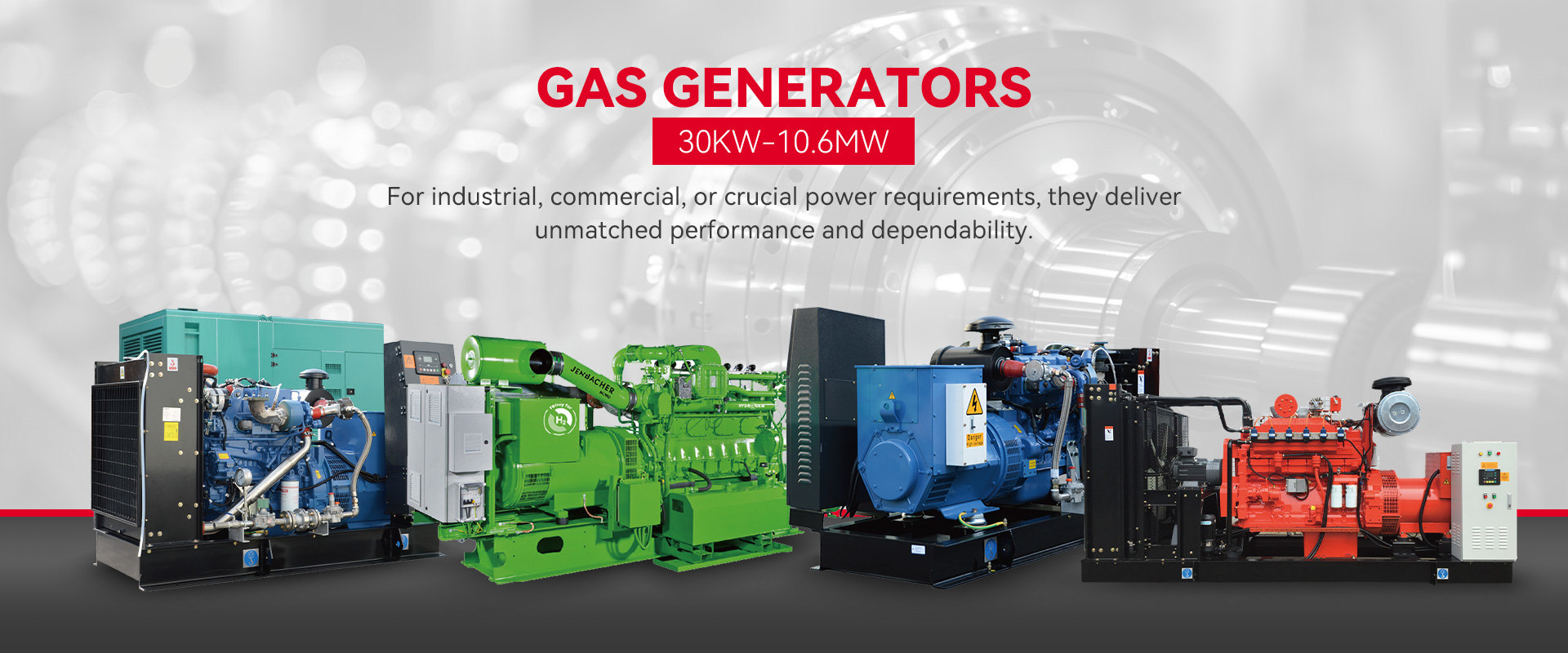In the realm of backup power generation, two prominent options stick out: gas main and diesel generators. Once the power quickly scans the blogosphere, and also the requirement for it is critical, deciding on the best generator set can make a big difference. But wait, how would you decide between gas main and diesel generators? Each has a unique pair of benefits and drawbacks, as well as the choice ultimately depends upon your specific needs and circumstances.

In this article, we are going to explore the distinctive features, advantages, and drawbacks of gas and diesel generator sets, enabling you to make a well-informed decision where option aligns best using your needs.
Gas Generators
Advantages
Cleaner Emissions: One of the greatest attributes of propane generators is their lower environmental impact. When gas burns, it generates fewer harmful emissions, like particulate matter, nitrogen oxides, and sulphur dioxide, compared to a diesel genset. As a result natural gas generators an eco-friendly option for those worried about quality of air and environmental sustainability.
Cost-Effective Fuel: Natural gas is frequently cheaper than diesel fuel. The charge savings could be significant over time, notably if you plan to use your generator frequently. Furthermore, the availability of gas is usually more stable, reducing price fluctuations.
Less Maintenance: Gas main generators typically require less maintenance than their diesel counterparts. This results from the cleaner-burning nature of gas, which results in fewer deposits and soot buildup inside the engine, extending the generator’s lifespan.
Quieter Operation: Gas main generators are known for their quieter operation. This can be a vital consideration in residential areas and settings where environmental noise must be minimized.
Disadvantages
Limited Fuel Storage: A problem with propane generators is the attachment to a nonstop method of getting propane. This can be problematic during extended power outages or in remote areas where a regular natural gas supply is probably not available.
Lower Energy Density: Gas has a lower energy density in comparison to diesel, meaning you may have to have a larger storage capacity or maybe more frequent refuelling for the same power output.
Lower Fuel Efficiency: Gas main generators usually are less fuel-efficient than diesel generators, that may increase operational costs over time.
Lower Portability: Due to the dependence on a dedicated propane supply, these generators are less portable and versatile than diesel generators.
Diesel Generators
Advantages
High Energy Density: Diesel fuel enjoys its high energy density. What this means is diesel generators offers more power inside a smaller package, causing them to be well suited for applications where space is restricted.
Fuel Storage: Diesel generators have the benefit of being able to store fuel for extended periods without degradation. This may cause them a trusted option for backup power in remote locations and in long-term power outages.
Fuel Efficiency: Diesel generators provide fuel efficiency, consuming less fuel for a similar power output as propane generators. This brings about lower operational costs.
Greater Reliability: Diesel engines are typically better and sturdy, which can lead to greater reliability in demanding conditions. They are usually the go-to option for mission-critical applications.
Disadvantages
Emissions and Environmental Impact: Diesel generators emit higher numbers of pollutants, including nitrogen oxides and particulate matter, which could have adverse effects on quality of air and public health. Stricter emissions regulations have been carried out mitigate these problems.
Noise Levels: Diesel generators are often noisier than natural gas generators, which is often very important in residential areas or where noise pollution can be a consideration.
Fuel Availability and value: Diesel fuel may be more costly and susceptible to price fluctuations. Additionally, storing large volumes of diesel fuel can cause safety and environmental risks.
Maintenance Requirements: Diesel generators typically want more frequent maintenance as a result of soot and carbon buildup in the engine, which may raise the total price of ownership.
When you should Choose Propane Generators?
Environmental Concerns: In the event you prioritize environmental sustainability and cleaner emissions, an organic gas generator could be the way to go.
Personal savings: If you’re seeking to reduce fuel costs over the long term and possess use of the best gas main supply, gas generators could be more cost-effective.
Quiet Operation: In areas or places where noise levels has to be kept down, gas main generators include the quieter choice.
Less Frequent Use: Should your generator functions as a backup for occasional power outages, the bottom maintenance requirements of natural gas generators make sure they are a handy option.
When to Choose Diesel Generators?
High Power Requirements: Prefer a high-power output within a compact package, diesel generators, making use of their high energy density, will be the better option.
Reliability: For mission-critical applications where reliability is vital, like data centres or healthcare facilities, diesel generators in many cases are preferred due to their robust and sturdy engines.
Remote Locations: In areas with limited usage of an all-natural gas supply or during long-term power outages, diesel generators using their reliable fuel storage will be the better choice.
Frequent Use: In case your generator will discover frequent use and you prioritize fuel efficiency, diesel generators can be cheaper ultimately.
Conclusion
The option between propane and diesel generators depends on your requirements, budget, and environmental concerns. Both kinds of generators have their benefits and drawbacks, and the secret is to carefully evaluate your requirements and priorities before you choose. Additionally, make sure to understand local regulations and emissions standards that may affect your option.
For more info about diesel engine you can check our website
